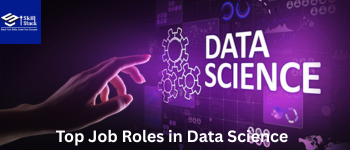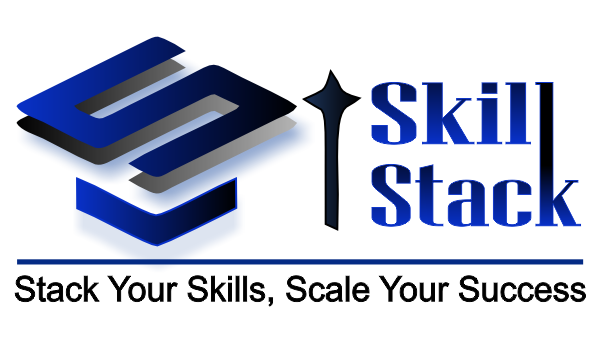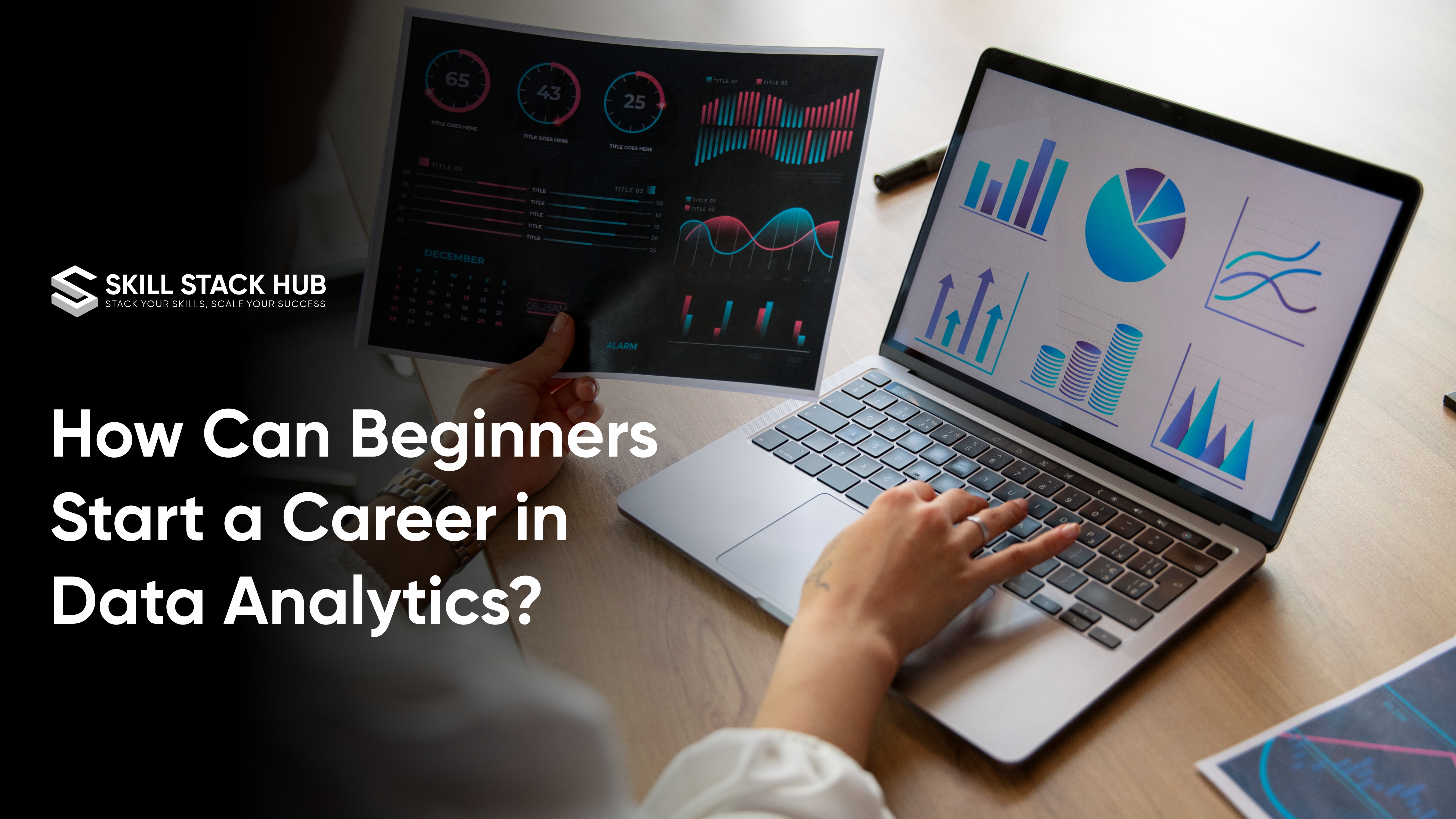
What Are the Top Job Roles in Data Science Today?
The data industry is booming—and for good reason. In a world powered by insights and innovation, data science has emerged as one of the most valuable and in-demand skill sets across every industry. Whether it’s healthcare, e-commerce, finance, or entertainment, data science is everywhere.
At Skill Stack Hub, we help aspiring professionals gain a clear understanding of this field through our hands-on, job-focused Data science course. In this article, we’ll break down the top job roles in data science today and guide you on how to pursue them.
1. Data Scientist
At the heart of the field is the Data Scientist role. This professional explores large datasets, builds predictive models, and uncovers hidden trends that help companies make data-driven decisions. They work across teams and often interact with business leaders to translate data into strategy.
Skills Required:
- Strong foundation in mathematics and statistics
- Proficiency in Python for data science and R
- Machine learning algorithms
- Data visualization with tools like Tableau or Power BI
Many students at Skill Stack Hub choose the Data Scientist path after completing our advanced Data science course, which includes real-world projects, mentoring, and job support.
2. Data Analyst
One of the most common entry-level roles in data science is the Data Analyst. Unlike Data Scientists, analysts focus more on processing, cleaning, and interpreting data rather than building predictive models.
Daily Responsibilities:
- Collecting and cleaning data
- Generating reports and dashboards
- Analyzing trends to support business decisions
Though technical knowledge is needed, many tasks can be performed with SQL, Excel, and visualization tools. However, learning Python for data science helps automate tasks and opens the door to advanced roles.
3. Machine Learning Engineer
As companies move toward automation and AI, Machine Learning Engineers are becoming critical to tech teams. These professionals take predictive models built by Data Scientists and scale them for production.
Key Requirements:
- Deep understanding of algorithms
- Strong coding skills in Python for data science
- Familiarity with cloud platforms (AWS, GCP)
- Deployment and performance tuning
At Skill Stack Hub, we emphasize Python, TensorFlow, and MLOps in our Data science course, giving students a solid foundation for ML roles.
4. Business Intelligence (BI) Analyst
BI Analysts are responsible for turning data into visual insights using BI tools like Tableau or Power BI. They work closely with decision-makers to ensure data supports business goals.
Responsibilities:
- Creating interactive dashboards
- Understanding business KPIs
- Managing data from various sources
While BI roles are less coding-heavy, knowledge of Python for data science helps in data preparation and analysis. Our course at Skill Stack Hub covers both technical and analytical sides to help you master this role.
5. Data Engineer
Think of a Data Engineer as the builder behind the scenes. They design, develop, and maintain data pipelines that feed data to analytics and machine learning teams.
Tools You Need:
- Big data frameworks (Hadoop, Spark)
- Cloud data services (AWS, Azure)
- SQL and Python for data science
- Data warehouse design
Our Data science course includes modules that touch upon engineering workflows, data pipelines, and hands-on projects so you get practical exposure.
6. AI Engineer
AI Engineers take machine learning one step further by developing smart systems that can think, learn, and adapt. These systems power chatbots, recommendation engines, and more.
Must-Have Skills:
- Deep learning with TensorFlow or PyTorch
- Neural networks and natural language processing
- Proficiency in Python for data science
- Strong math background
At Skill Stack Hub, our specialized AI tracks prepare learners through focused labs and Python-heavy curriculum.
7. Data Architect
As data becomes more complex, companies need Data Architects to design systems that ensure data quality, accessibility, and security. They collaborate with engineers and analysts to build scalable solutions.
Skills Needed:
- Database design and data modeling
- Data governance and architecture patterns
- Scripting knowledge including Python for data science
- Cloud data architecture knowledge
Our Data science course includes guidance on career switching to advanced roles like architecture, with mentorship from industry professionals at Skill Stack Hub.
8. Statistician
Before machine learning came into the picture, statisticians were the original data experts. Even today, they’re highly valuable for solving real-world problems using statistical methods.
Key Tasks:
- Running statistical tests
- Creating models for forecasting
- Working with structured data
- Using tools like R and Python for data science
Statistical concepts are foundational in our curriculum at Skill Stack Hub, ensuring students are equipped with both traditional and modern methods.
9. Quantitative Analyst (Quant)
Mostly seen in the finance sector, Quants build mathematical models for trading and risk management. They blend finance, mathematics, and programming to predict market trends.
Required Skills:
- Advanced statistics & calculus
- Financial modeling
- Programming in Python or C++
- Familiarity with Python for data science libraries
Many professionals enhance their quant skills by taking a Data science course, especially one that includes probability, statistics, and machine learning.
10. NLP Engineer
With the rise of chatbots, speech recognition, and sentiment analysis, NLP (Natural Language Processing) Engineers are in high demand. They build systems that process human language in text or voice format.
Must-Learn Areas:
- Text classification and processing
- Sentiment analysis and tokenization
- Deep learning for language
- Libraries like SpaCy, NLTK, and Python for data science tools
Our NLP specialization at Skill Stack Hub is project-based, giving learners a practical edge in this complex domain.
Which Role Should You Choose?
Choosing a job role in data science depends on your interests, strengths, and long-term goals. If you love statistics and storytelling, go for Data Analyst. If you're passionate about AI, start building your skills as an ML or AI Engineer. No matter which role you choose, mastering Python for data science and enrolling in a structured Data science course is the first and best step forward.




